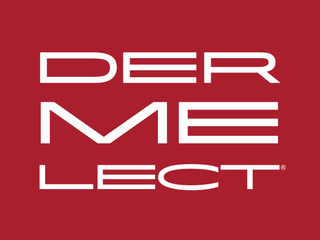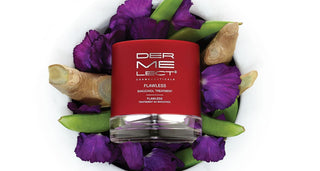In beauty, trends come and go, but every so often, an ingredient rises above the noise—gaining cult status not just for the hype, but for its real, skin-changing benefits. Right now, that ingredient is bakuchiol.
Touted as the gentler, plant-derived alternative to retinol, bakuchiol has carved out a solid spot in the skincare spotlight—and it’s not just another “clean beauty” marketing ploy. Dermatologist-approved and editor-beloved, this botanical powerhouse delivers many of the same results as vitamin A derivatives (think: smoother texture, fewer fine lines, more even tone), without the harsh side effects that so often come with them.
If retinol has long been crowned the gold standard of anti-aging, bakuchiol is its chic, non-irritating counterpart—and your skin may be better off for it.
What Is Bakuchiol?
Let’s start with the basics. Bakuchiol (pronounced buh-koo-chee-ol) is a naturally occurring compound derived from the seeds and leaves of the Psoralea corylifolia plant, also known as babchi. It's been used for centuries in traditional Ayurvedic and Chinese medicine to treat skin ailments. But recently, it’s gone from ancient remedy to modern beauty darling, thanks to a growing body of research and a consumer base demanding more from their skincare—without the redness, peeling, or sun sensitivity.
What makes bakuchiol particularly fascinating is that, although it bears no structural resemblance to retinol, it functions in a remarkably similar way. It triggers the same genes and pathways in the skin responsible for collagen production, cellular turnover, and pigment regulation. The result? Skin that looks brighter, smoother, and more refined.
Why It’s Getting So Much Attention
There are a few key reasons why bakuchiol has become such a standout in skincare:
- It works. In a 2018 study published in the British Journal of Dermatology, bakuchiol was found to be just as effective as retinol in reducing the appearance of wrinkles and hyperpigmentation—with significantly less irritation. That’s a big win for anyone with sensitive or reactive skin.
- It’s pregnancy-safe. Retinol and other vitamin A derivatives are off-limits during pregnancy and breastfeeding due to potential risks. Bakuchiol offers a safe alternative for those wanting to maintain an effective skincare routine during that time—without compromise.
- It plays well with others. Unlike retinol, which is notoriously finicky when layered with other actives (like vitamin C or exfoliating acids), bakuchiol is far more forgiving. It can be used day or night, layered easily, and won’t make your skin more photosensitive.
- It aligns with clean beauty values. If you’re looking to clean up your skincare without losing potency, bakuchiol checks all the boxes: it’s vegan, cruelty-free, sustainably sourced, and biologically active.
Who Is It For?
Bakuchiol is one of those rare ingredients that checks almost every box—making it a smart, versatile addition to just about any skincare routine.
If you have sensitive skin or have struggled with the irritation that often comes with retinol (think redness, flaking, or tightness), bakuchiol offers a gentler path to smoother, firmer skin. It’s also ideal for those new to actives or looking for a plant-based entry point into anti-aging ingredients.
One of its biggest benefits? Bakuchiol doesn’t increase your skin’s sensitivity to the sun—unlike traditional retinol—so it’s safe to use in your morning routine without compromising your barrier. That alone makes it a standout for anyone who wants consistent, daily results.
It’s also widely considered safe to use during pregnancy and breastfeeding, offering a welcome alternative when many potent ingredients are off-limits but you still want to keep your glow.
Whether you’re just starting to think about prevention in your 20s or looking to refine texture and tone later in life, bakuchiol is a reliable, skin-friendly active that meets you where you are—and keeps working, without the side effects.
How to Use Bakuchiol
When incorporating bakuchiol into your routine, look for well-formulated serums, moisturizers, or creams where it’s featured as a hero ingredient. Pairing it with hyaluronic acid, peptides, or ceramides only boosts its skin-loving benefits.
Here’s what a simple routine could look like:
Morning:
- Gentle cleanse
- Vitamin C serum
- Bakuchiol-infused moisturizer
- Broad-spectrum SPF (always!)
Evening:
- Cleanse
- Exfoliating toner or essence (2–3x a week)
- Bakuchiol serum
- Nourishing cream or facial oil
Because bakuchiol doesn’t increase your skin’s sensitivity to the sun, it can safely be used during the day—a major bonus in a world where most potent actives are strictly P.M.-only.
The Bottom Line
Bakuchiol isn’t just a fleeting trend—it’s a scientifically backed, performance-driven ingredient that offers a thoughtful alternative to traditional retinol. For anyone who’s experienced irritation, sensitivity, or the limitations of more aggressive actives, bakuchiol proves that powerful skincare doesn’t have to come at the cost of your skin barrier.
Its ability to visibly improve texture, tone, and fine lines—without redness, dryness, or increased sun sensitivity—makes it a standout for virtually all skin types and life stages. From those just beginning to explore preventative care to those seeking more targeted results in a gentle formula, bakuchiol rises to meet the moment.
And perhaps most importantly, it aligns with what modern skincare is truly about: transparency, versatility, and balance. Safe during pregnancy and breastfeeding, compatible with daytime use, and rooted in botanical science—bakuchiol isn’t just another ingredient. It’s a reflection of where beauty is headed: high-performance, low-maintenance, and undeniably skin-first.










